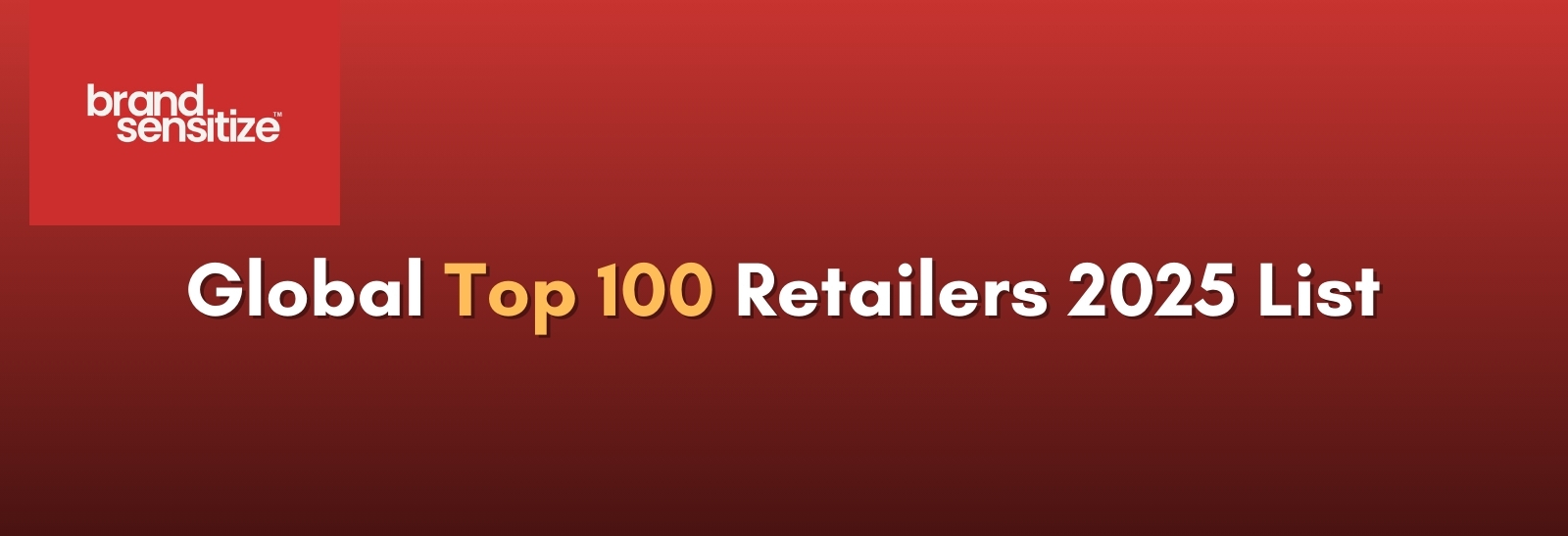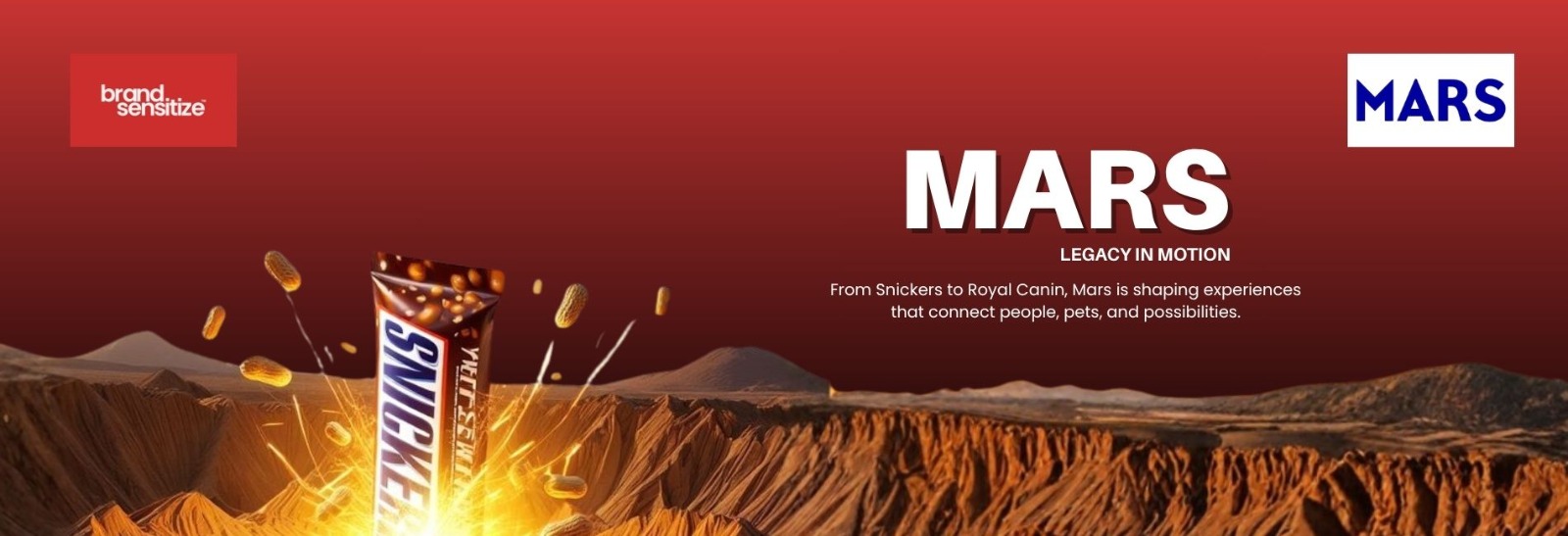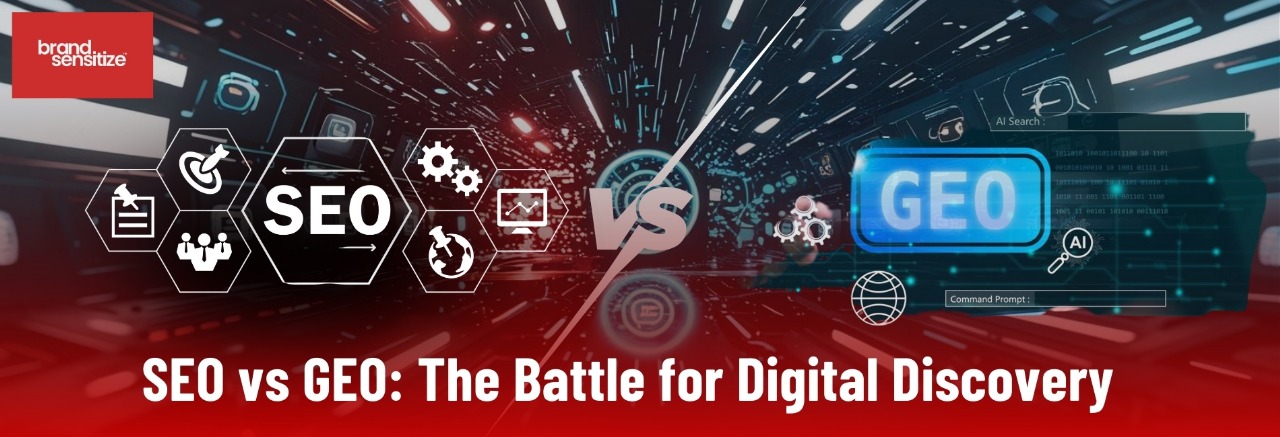
BrandSensitize | Strategic Brand Evaluation & Marketing Advisory
Recent Posts


Scaling GCCs in the AI-First Era: From Captives to Catalysts of Innovation.

Mars: Building a Purpose-Led Global Brand Through Innovation & Cultural Relevance
follow us
SEO vs GEO: The Battle for Digital Discovery is Reshaping Marketing Strategy

The playbook for digital visibility is changing. For years, brands poured money into content creation and SEO to rank high on Google. However, a new challenge and opportunity have emerged: GEO (Generative Engine Optimization).
GEO is about tailoring content for AI-driven search experiences, where users turn to tools like ChatGPT, Perplexity, or Google’s AI Overviews instead of scrolling through endless search results. And here’s the shift: people are starting to trust AI answers more than traditional Google search results.
Gen Z, in particular, leans heavily on AI search and recommendations. Buying patterns are reflecting this trust. What really matters now isn’t what brands say about themselves but what customers (and even employees) express. The voice of the customer significantly influences brand reputation more than internal assumptions.
We’re moving from the old era of “word of mouth” to the new reality of “world of AI.”
What This Means for Retailers
Imagine a customer asking an AI tool:
- “Where should I buy the best quality, ergonomic home furniture?”
- “Which grocery store near me has the best organic food at affordable prices?”
Only GEO-optimized brands will appear in those answers. If your brand isn’t prepared, you’re invisible.
GEO Priorities for Brands
To thrive in this discovery model, brands need to focus on:
- Conversational content that directly answers specific customer questions
- Structured data that AI can parse and cite with ease
- Authoritative sources that help AI models trust your content
- Direct answer optimization instead of just chasing web traffic
In this landscape, being cited is more valuable than being clicked.
The Hybrid Future: SEO + GEO
Smart brands aren’t choosing between SEO and GEO, they’re mastering both:
- SEO keeps visibility alive in traditional search
- GEO drives relevance in AI-powered discovery
- Cross-optimization opens multiple pathways to reach customers
The winning formula? Content that serves humans and AI alike, authoritative, well-structured, and genuinely useful.
Why It Matters
AI is quietly reshaping how consumers discover information. Instead of browsing dozens of links, people rely on AI summaries that pull insights from trusted sources. And here’s the kicker: customers are training these AI tools themselves. The more they query, the more AI learns their preferences, delivering recommendations they’re naturally inclined to accept.
This creates a self-reinforcing cycle for early adopters of GEO. Brands cited early gain preference in AI algorithms, which leads to even more visibility over time. For local retailers, this could mean winning more customers simply by showing up first in AI answers when someone is ready to buy.
We’re entering a hybrid search era where SEO gets you seen, but GEO gets you chosen. Brands that adapt now, by crafting content for both search engines and generative engines, will own the future of online discovery.
Comments
Keith Nicks is EVP and Chief Digital & Commercial Officer for Ahold Delhaize USA, overseeing
omnichannel marketing, retail media, and e-commerce for U.S. brands. Tim Bork is the Chief Commercial
Officer for Ahold Delhaize Europe & Indonesia, focusing on local brands and responsible for growth,
including marketing and customer experience.
With nearly €96 billion in projected 2025 revenue, Ahold Delhaize ranks among the top 10 global
retailers, operating over 6,700 stores across multiple formats, including Albert Heijn, Delhaize, Food Lion,
Giant, Hannaford, and Stop & Shop.
6,700 stores powered by one procurement platform – a scale that makes others jealous.
For customers, Ahold isn’t just a grocery retailer; it’s a trusted lifestyle partner that combines the
intimacy of local shopping with the innovation and value of global retail leadership.
Ahold’s brands, such as Albert Heijn, Stop & Shop, and Giant, represent 37 years of average customer
relationships—customers don’t just shop there; they grow up with these brands, creating emotional
connections that transcend transactions.
After gaining thirty million loyalty members, Ahold demonstrated that personalization consistently
outperforms promotion.
BrandSensitize™ research shows that Ahold Delhaize operates with a decentralized marketing and brand
building approach, where marketing functions are embedded within:
- Brand-specific leadership (each local brand has its own marketing teams.
- Regional commercial officers who oversee marketing alongside broader commercial
responsibilities. - Digital and omnichannel specialists who handle modern marketing channels.
Ahold Delhaize’s Brand Building Initiatives:
Sustainability campaign: €50M investment reached 10M consumers, delivering a 20% boost in
sustainable product sales and generating €400M in revenue.
Digital Marketing: €150M digital budget achieved 25% higher engagement, 2.6% click-through rates (vs
1.9% industry standard), and built 500K+ social media following.
Loyalty Program: 30M members across brands with 85% customer penetration, driving 75% of total sales
and contributing €1B annually—10% better retention than competitors.
Strategic Brand Partnerships: 100+ collaborative campaigns with CPG brands, including Coca-Cola,
generated €600M in additional revenue through joint promotions.
Omnichannel Investment: A $1 billion price investment initiative, combined with AI-powered
personalization, aims to achieve an 80% loyalty sales penetration by 2028.
Strategic marketing drives measurable business results—from sustainability messaging to digital-first
loyalty programs, Ahold Delhaize demonstrates that well-executed brand-building campaigns deliver
both customer engagement and bottom-line growth on a global scale.
Ahold Delhaize’s Strategic Technology Partnerships:
- W23 Global VC Fund: $125M investment with Tesco, Woolworths & others backing AI startups
like Harmonya & Protex AI - Zycus Partnership: Source-to-Pay suite powering procurement across 6,700+ stores globally
- Hanshow Technology: Electronic shelf labels + innovation labs across all European locations.
- Inmar Intelligence: $141M in customer savings delivered through personalized digital coupons.
- DoorDash Collaboration: Tripled order volumes through enhanced last-mile delivery integration.
- Internal AI Innovation: MaxiGPT, LionGPT & Albot assistants deployed across the Serbian,
Belgian, and Czech markets. - New Tech Studio: AD/01 in Bucharest targeting 250+ tech talents for digital acceleration.
Zycus has licensed its comprehensive Source-to-Pay suite to Ahold Delhaize, including eSourcing,
Contract Lifecycle Management (CLM), and Supplier Management platforms.
TCS’s relationship with Ahold Delhaize marks a mature, strategic partnership focused on digital
transformation and supply chain technology.
Wipro partnered with Capgemini as one of the most significant retail transformation initiatives in the
world at Ahold USA.
Capgemini powers Ahold Delhaize’s end-to-end transformation, developing blockchain technology use
cases for Ahold Delhaize’s supply chain and leveraging its expertise in business transformation, as well as
its understanding of Ahold’s industry and operations.
Traditional retailers, equipped with AI and Robotics, will surpass pure digital players by 2030.
The key is to position Ahold not as just another retail success story, but as the company that has
rewritten the rules of digital transformation for every traditional business watching.

Leave a Reply